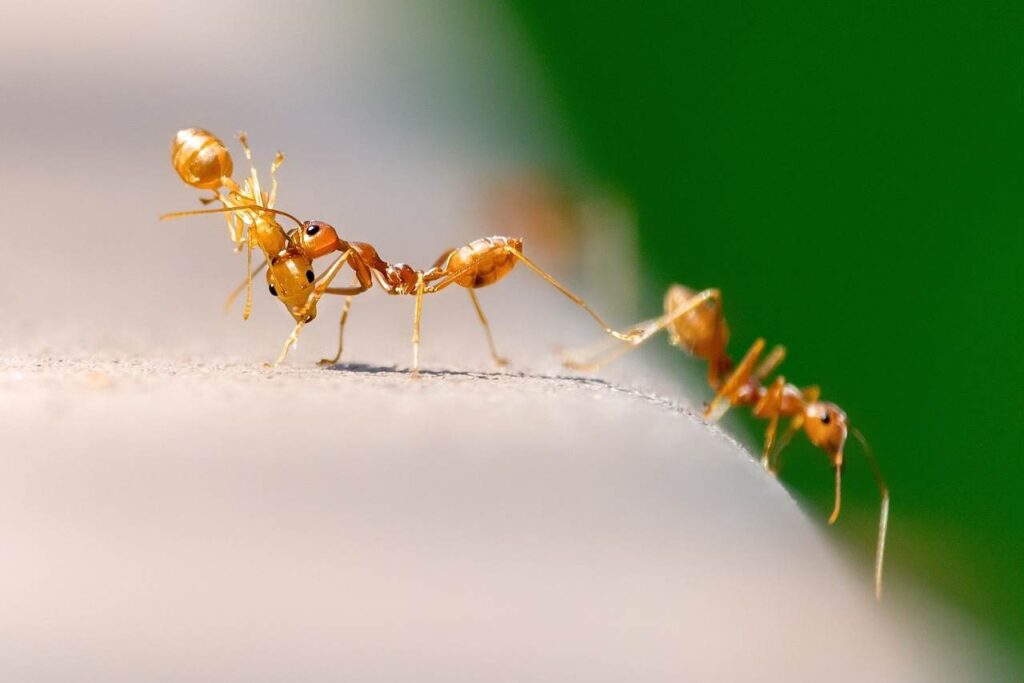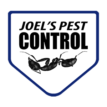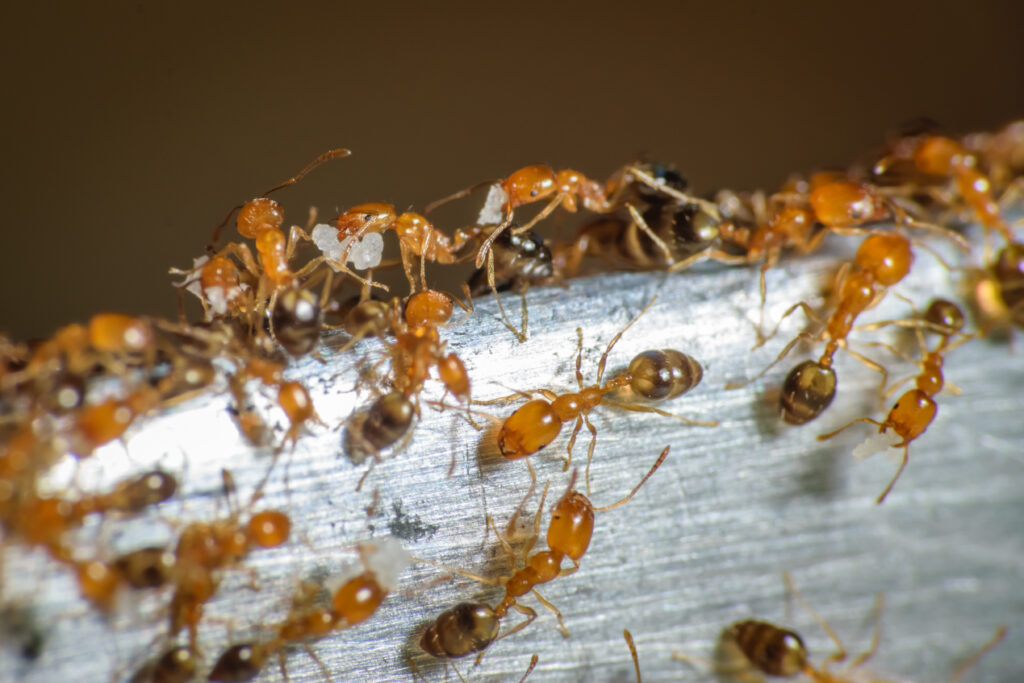A stubborn ant problem in your home or property could be Pharaoh ants who typically prefer to build their nest indoors, especially during the warmer months. Once inside, this breed of ants is usually found in warm, high moisture areas, such as in narrow openings in the wall, not far from water and food sources.
What Are Pharaoh Ants?

Pharaoh ants are said to have derived their name from the age-old belief that they were one of Ancient Egypt’s plagues.
These small ants vary in length from about 1.5 to 2 mm long, and their bodies range in color from light brown to red or yellowish with dark-colored abdomens. They also have stiff, thinly dispersed hairs on their bodies, a pair of segmented antennas, and small eyes.
They differ from other tiny, light-colored ants, such as fire ants and bigheaded ants, in that their antenna has 12 segments, and each of the antenatal clubs contains 3 segments that gradually get bigger towards the end.
Their colony, which consists of workers, queens, males, and developing ants, can be large, containing up to several thousand members or more, or as small as a few dozen members. They are also known to split up or break off and form various daughter colonies, which can quickly lead to an infestation.
Once a worker has located a food source, it lays a feeding trail from the food to the nest, often using water pipes and wiring to travel between floors and through the walls. Pharaoh ants are naturally attracted to sweet foods; however, they also like to feed off oily and high-fat foods, as well as any other food they can find.
What Threats Do Pharaoh Ants Pose?
Pharaoh ants will eat almost anything, and they can invade an open food source in just a matter of minutes; therefore, one of the biggest issues with these ants is they can cause a lot of food to be wasted. They are also known to transmit a number of pathogens, such as staphylococcus and salmonella, which can contaminate food and other surfaces.
Treating Pharaoh Ants
Pharaoh ants are capable of establishing many colonies throughout a property, which makes them hard to manage, and they can also infiltrate foods rather quickly, which makes them a major nuisance, so much so that some homeowners have even considered selling their property due to a Pharaoh ant infestation.
They also have a habit of building their nests in the oddest of places or places that are hard to reach; therefore, treatment has to be thorough. In fact, a Pharaoh ant problem most often requires treating the whole building to control the infestation. Furthermore, these ants do not respond well to most traditional household pest control treatments, which means you will most likely require professional assistance.
The technician understands the nesting and foraging habits of this species of ants and can place baits in known nesting areas and feeding trails, which the ants will then take back to destroy the entire colony – an important step in treating Pharaoh ants, otherwise the remainder of the colony will work quickly to reestablish themselves, leading to re-infestation. The technician can treat the perimeter of the exterior to help prevent the ants from entering the property.

